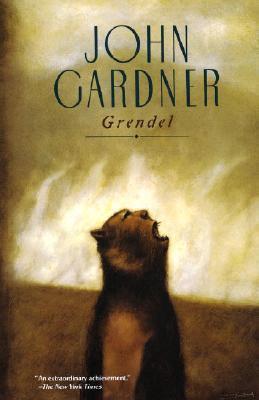Chapter 9
byChapter 9 begins with a vivid portrayal of December’s harsh winter, where the landscape is blanketed in death and desolation. The trees are bare, their once vibrant leaves now gone, and the ground is frozen solid, leaving no signs of life in its wake. The deer, thin and emaciated, wander through this unforgiving terrain, their struggles for survival starkly evident. The protagonist, observing this bleak scene, reflects on the overwhelming presence of death, noting the unsettling sight of dead wolves half-buried in snow. Despite the chilling cold and the sense of decay, there is an inexplicable feeling of change in the air, as if something new is on the horizon. The silence is broken by the sight of children playing in the snow, their footprints leaving eerie, winged impressions that spark curiosity and introspection in the protagonist. The innocence of the children contrasts sharply with the surrounding desolation, adding a layer of mystery to the environment and leaving the protagonist to wonder what lies beneath the surface of this quiet, bleak world.
The narrative shifts focus to Hrothgar’s bowman, a figure embodying the quiet tension of a predator stalking his prey in the deep woods. As the bowman observes a hart, the moment seems to stand still, suspended in time. The hunter’s eyes lock onto the prey, and the atmosphere grows thick with anticipation. The hunter’s action is swift and precise, resulting in the hart’s demise. This brief but intense moment sticks with the protagonist, lingering in their mind as a symbol of fate, control, and the inevitability of death. There is an underlying mystery in the encounter, suggesting that, just like the hunter, the protagonist is caught in a larger, uncontrollable force. The protagonist reflects on how the hunter’s precision and the hart’s fate mirror the cyclical nature of life and death, raising existential questions about power, survival, and the forces beyond one’s control.
Near Hrothgar’s hall, grotesque idols of the Scyldings’ gods stand as silent, hollow figures. These idols seem to embody the futility of the rituals performed by the priests, who, in their desperation, continue to perform blood sacrifices, like offering a calf, in hopes of divine intervention against perceived threats. The protagonist looks on with cynicism, seeing through the empty actions of the priests, knowing their faith is misguided and lacking in true belief. This disillusionment grows as the protagonist recalls their past actions of vandalizing these very idols, an act that went largely unnoticed by the townspeople, save for the priests who viewed the defilement with anger. The emptiness of the rituals becomes apparent as the protagonist reflects on the disconnect between the ceremonies and the beliefs they supposedly represent. The irony of the situation is clear—the priests are engaging in rituals meant to evoke divine protection, but there is no true power or belief behind their actions. This realization leaves the protagonist questioning the role of religion in a world where the gods seem indifferent to the struggles of the people.
As the night deepens, the protagonist finds themselves reflecting within the ring of gods, observing figures like Hrothgar and Wealtheow silently enduring their own suffering. Their stoic presence in the face of adversity highlights the quiet resilience that defines their lives, yet it is a resilience marked by an unsettling silence. The stillness of the moment is disrupted by the arrival of Ork, an elderly priest whose frailty stands in stark contrast to the strength of the other figures in the hall. Ork’s presence is felt as he disturbs the quiet, and a darkly humorous dialogue emerges between him and the protagonist. Ork, with his rambling yet profound musings about the King of the Gods, blends mockery with a strange reverence, leaving the protagonist to grapple with the complex nature of divinity. In his emotional outburst, Ork reveals a deeply personal and vulnerable side, a moment that captures the attention of the other priests, who are left unsure of how to react.
The conversation with Ork escalates, drawing out tensions within the priesthood. Some priests are captivated by Ork’s experiences, drawn to the depth of his mystical revelations, while others dismiss his words as nonsense. The clash of perspectives within the priesthood reveals deeper fractures in their beliefs, highlighting the divisions that have formed within their spiritual community. As the chapter progresses, the themes of decay and the impotence of rituals become more pronounced. The protagonist watches the priests struggle with their faith, their attempts at invoking divine power only highlighting the futility of their efforts. The rituals, which were once meant to protect the people and invoke divine favor, are now reduced to hollow gestures, failing to bring any sense of real change or protection. The protagonist’s cynical observations about the futility of these rituals serve as a critique of the disconnect between faith and reality, as the priests’ ineffective beliefs offer no comfort in the face of the harsh world around them.
In these moments, the protagonist is forced to reflect on the nature of belief and its place in a world that seems to be defined by suffering and decay. The religious practices and beliefs of the people, once central to their lives, now seem impotent in the face of overwhelming adversity. The failure of the rituals becomes a metaphor for the broader existential crisis that the protagonist feels, as they witness the collapse of a system that once provided meaning and purpose. The chapter intertwines themes of decay, the futility of rituals, and the struggle for meaning in a world that offers little solace. The protagonist’s observations force readers to question the efficacy of faith in a world marked by decay and suffering, raising deeper philosophical questions about the role of religion in the face of existential uncertainty. The rituals may continue, but they seem increasingly irrelevant in a world where the gods appear distant and indifferent to the suffering of the people.

